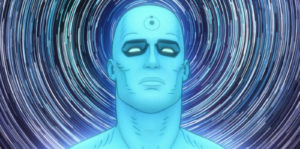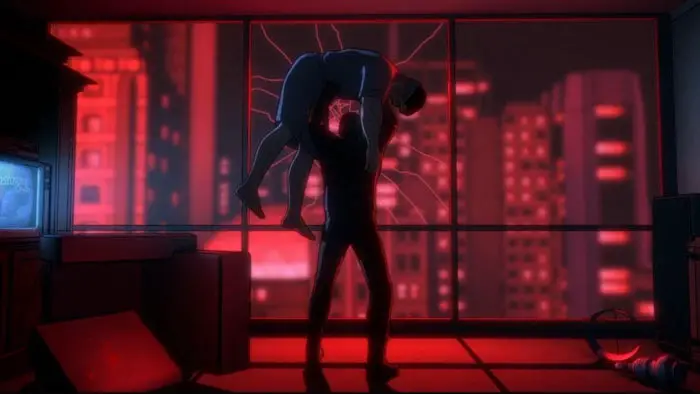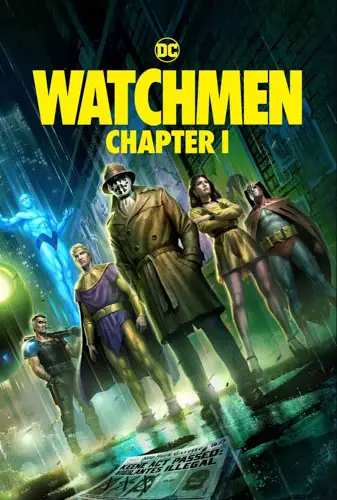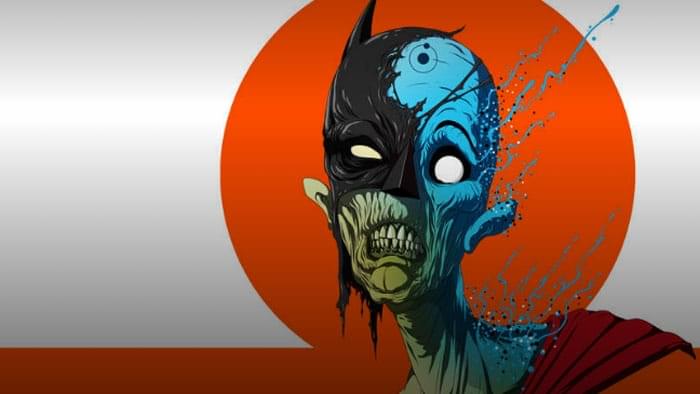
Watchmen: Chapter 1 begins a new animated version of Alan Moore’s classic graphic novel, directed by Brandon Vietti and written by J. Michael Straczynski. The Watchmen universe explores an American alternate history of the 1980s in which vigilante crime fighters called “masked adventurers” are active. They are minimally effective but tolerated by U.S. law enforcement.
The situation changes when a genuine superhero emerges after a nuclear research accident. Atomic physicist Dr. Jon Osterman is transformed in the mishap, acquiring omnipotent abilities to manipulate time, matter, and energy. He works with the U.S. government and is code-named Dr. Manhattan. Despite his preternatural abilities, Osterman initially kept his allegiance with the United States. A former colleague says of him, “God exists, and he’s American.” With the unlimited power of Dr. Manhattan-backed domestic and foreign policy, the U.S. won the Vietnam War, Nixon is still president, and the fear of the U.S. keeps the Cold War in full effect.
When the narrative begins in the film, it has been some years since a law was passed banning masked vigilantes. One of the key figures among them, Eddie Blake, AKA The Comedian, has been murdered, and his former teammate Rorschach (who went underground and never gave up his mask) is investigating. His inquiries will reveal and even initiate world-changing events.

“With the unlimited power of Dr. Manhattan-backed domestic and foreign policy, the U.S. wins the Vietnam War…”
Watchmen fans are able to indulge in an embarrassment of riches when it comes to media set in this world. From the flawless classic original graphic novel series by Alan Moore and Dave Gibbons, to several spinoff comic books, to the Zack Snyder film, to Damon Lindelof’s television series centered on the 1921 Tulsa race massacre. Now that list grows by one with Watchmen: Chapter 1.
Volumes have been written unpacking the dense thematic structures of Watchmen. The blend of socio-political commentary with character studies, overlaid by a parable about good intentions paving a road to hell, provides a thought-provoking backdrop for a viewer to be entertained while meditating on who we are as a culture. Moore holds up a mirror to our fetish for superhero worship, which tangentially speaks to a misguided belief in American exceptionalism. Watchmen is the first example of superhero deconstruction and the original superhero noir tale.
The drama surrounding the material is as fascinating as the story itself. Alan Moore has disavowed all moving-picture versions of the story and is walking away from Watchmen now. He has a legitimate point: the graphic novel series is as near-perfect a work of art as has ever been created. Any serious would-be fan needs to start there or go back to it.

"…begins a new animated version of Alan Moore’s classic graphic novel..."


